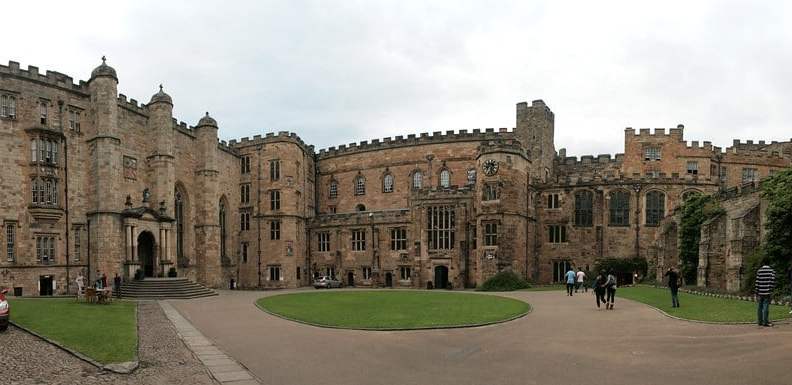‘Co-ordinated attack’ on LGBT+ students by group of 15 anonymous homophobes leaves queer freshers terrified

Students are planning a peaceful protest at Durham University after a controversial speech by Rod Liddle. (Creative Commons/jepoirrier)
The University of Durham condemned homophobes who hijacked a meeting of LGBT+ students with vile slurs and videos.
LGBT+ students received a poor welcome to the University of Durham when their Zoom meeting was bombarded by 15 people screaming obscenities.
The online meeting of the university’s LGBT+ association was held for new students at St Mary’s College, who are already facing COVID-19 restrictions.
They were left feeling “threatened” and unsafe when 15 anonymous attackers hijacked the meeting with loud music, flaming abuse and “sexually explicit videos”.
“To hijack an event like this in such an aggressive and targeted way is nothing less than a hate crime,” the university’s LGBT+ groups said in a statement to the BBC.
“The fact that this was not simply an individual acting alone, but rather a co-ordinated attack from a number of people, is a reminder of how routinely unsafe and unwelcome our community is made to feel.”
They warned of a “toxic” culture at the university, adding that such “malicious behaviour” was even worse when the pandemic made it difficult for students to meet in person and support each other.
As many as one in seven British LGBT+ people are now thought to be struggling with depression as the pandemic cuts them off from support networks.
The link to the Zoom chat was shared within the college for the welcoming event, suggesting the abusive trolls were fellow students. Durham University condemned the Zoombombing and acknowledged the distress it had caused.
“Such behaviour is not acceptable at Durham University and will not be tolerated. Incidents will be reported to the police,” said Sam Dale, the university’s director of student support and wellbeing.
“Every member of the university is expected to treat others with respect and tolerance so that every member of our community can live, study and work in a safe and inclusive environment.”
Unfortunately it’s only the latest example of abusive behaviour from Durham students: earlier this week, the Guardian reported numerous claims of “toxic” bullying, with people being mocked for their Northern accents and coming from poorer backgrounds.
And last month, Durham University condemned what it called “utterly abhorrent” comments on social media by students set to start at the university.
It included references to competing to have sex with “the poorest girl”.

